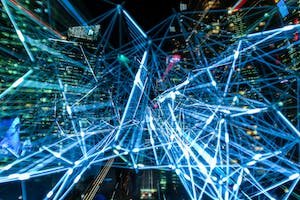Hi guys...how are you all?Welcome today I will talk about the Artificial Intelligence that is emerging field.
What is AI?

Artificial Intelligence (AI) is a rapidly growing field that has the potential to fundamentally change the way we live and work. At its core, AI is the development of computer systems that can perform tasks that would typically require human intelligence, such as recognizing speech, understanding natural language, and making decisions.
There are several different types of AI, including rule-based systems, which use a set of pre-defined rules to make decisions, and machine learning systems, which use algorithms to learn from data and make predictions or decisions. The most advanced form of AI is called "general AI," which is able to perform any intellectual task that a human can.
AI: Future and Challenges
The future of AI is exciting and promising, with the potential to revolutionize a wide range of industries and improve our lives in countless ways. Some of the key areas where AI is expected to have a significant impact include:
Healthcare: AI systems are already being used to analyze medical images and assist doctors in making diagnoses, as well as to identify potential drug interactions and side effects. In the future, AI could be used to develop personalized treatment plans for patients, as well as to identify early warning signs of disease.
Transportation:Self-driving cars are one of the most visible examples of AI in the transportation industry. They have the potential to significantly reduce accidents and improve the efficiency of transportation systems.
Finance:AI is already being used to detect fraudulent transactions and predict stock market trends. In the future, AI could be used to automate many of the tasks currently performed by financial analysts, as well as to identify new investment opportunities.
Manufacturing: AI can be used to optimize production processes, identify inefficiencies and predict equipment failures, leading to higher productivity and lower costs.
Retail: AI can be used to personalize customer experiences and make recommendations, as well as to optimize pricing, inventory and supply chain management.
Cybersecurity: AI can be used to detect and respond to cyber threats in real-time, as well as to identify and mitigate vulnerabilities in networks and systems.
While the future of AI is bright, there are also some concerns about the impact of this technology on jobs and society as a whole. As AI systems become more advanced, they are likely to automate many tasks currently performed by humans, leading to job losses and the need for retraining. Additionally, there are concerns about the ethical implications of AI, such as the potential for misuse of the technology and the impact on privacy and civil liberties.
To address these concerns, it is important to invest in research and development of AI, as well as to develop policies and regulations that ensure the responsible use of this technology. Additionally, we need to focus on developing AI systems that augment human capabilities rather than replace them, and on providing retraining and other support to workers who are affected by the automation of their jobs.
Conclusion
In conclusion, Artificial Intelligence is a rapidly evolving field with the potential to revolutionize many industries and improve our lives in many ways. However, it also brings challenges that need to be addressed. The key is to invest in responsible research and development, while also creating policies and regulations that ensure ethical use of AI.